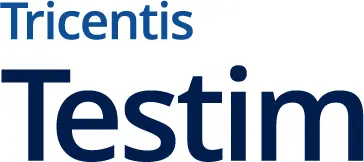Test data management (TDM) is a term coined by quality assurance experts (QAs) in reference to tasks and processes around software testing. Since data is part of the phrase, it’s easy to myopically refer to test data management tools as simply “testing data generation” bots. Luckily, the best tools do more than that.
This post investigates popular test data management tools in 2021. Unlike other lists, we won’t leave it at the data-for-testing level. This begins with acknowledging the importance of software testing. Also, usability and technical innovation factors were considered in curating these test data management tools.
Let’s start with why you’d need test data management tools in the first place.
Why Do We Need Test Data Management Tools?
The case for TDMs opens with the need for software testing. Without it, even the page you’re reading this on would have crashed a couple of times before loading successfully. Testing upholds software quality. That being the case, every change made to a piece of software should undergo a testing phase. Otherwise, we’ll potentially append apps with bugs in the name of versioning.
And now for a comprehensive (briefly explained) list of why test data management tools are a good idea.
Key Benefits of Test Data Management Tools
To start with, you may want to automate some of the manual processes out of your testing ritual. It’s with this desire and being okay with the attached pros and cons that companies are adopting TDMs.
Here’s a peek into the benefits of test data management tools.
Adopt High-Quality Test Data
TDM tools cut short your search for sample data to run any kind of test on your applications. In addition to the much-appreciated ease, the data generated is in accordance with your specifications. This saves you a lot of headaches filtering out chunks of data that would cause verification and validation halts.
Accelerate Test Environment Scaling
When scaling, or conducting feasibility checks thereof, you can use TDM tools to generate data outside your system’s incumbent usage space. Couple this with being able to replicate test environments, and you reduce the window of failure for your growing applications. That this would cost more time and resources if done without test data management tools is a no-brainer.
Classify and Mask Sensitive Data
TDM tools come in handy when testing and complying with sensitive data. An example of such a data set would be your financial profile and login credentials. However, TDM tools can also help you comply with regional data protection legislation such as GDPR, among others.
Automate Housekeeping Activities on Test Data
Data’s most elusive trait has to be its shelf life. The fact that every system is unique at its core makes it hard to enforce the habit of refreshing data. As a result, testers often adopt the same test data for systems that would have outgrown original requirements specifications. Test data software tools render effortless the task of refreshing test data’s format and validity. All this, through automation.
So far, we’ve exposed a series of walking-and-talking reasons for you to embed TDMs into your pipelines. Let’s now go through the best options available in 2021.
The Best TDM Tools in 2021
This year (2021), we’ve witnessed a growing number of developers, database administrators (DBAs), and QAs working remotely. This makes cloud operability a core feature across all TDM tools in our selection. Also, a feature present across our selection is the support for continuous testing as a constituent of CI/CD pipelines.
In no particular ranking order, here are the best test data management tools yet.
IBM’s Test Data Management Solution: InfoSphere Optim
InfoSphere Optim is modeled on enterprise data operations beyond just test data management, making it a key solution for data throughout your pipeline.
Specific to our case, IBM InfoSphere Optim boasts the most comprehensive solution for the enterprise IT architect’s test data requirements. Notable features include the following:
- Formation of test environments as clones of production situations.
- Test data fabrication.
- Sensitive data protection, all the while maintaining context.
- An archive solution that hordes enterprise data without the stress of new hardware and accompanying costs.
Broadcom
Broadcom’s brand of test data management is not just for agile teams. In fact, you can pair it with any workflow methodology (SDLC, etc.). This is because they all have a testing stage in varying intensities. Then again, it’s a CI/CD testing requirements solution.
You can expect the following features when using Broadcom’s Test Data Manager:
- Synthetic data creation for use in tests.
- Personally identifiable information (PII) detection with heatmaps.
- Virtual storage of copies of test data—effectively lowering redundancy on the software and hardware side of running tests.
- Data mining capability to locate the perfect test data clusters for your pipelines.
Informatica
Informatica’s Test Data Management solution takes a risk and compliance–first approach to TDM. Typically, you’ll find it under the data security section of their business offerings. It’s also created to include operations and compliance teams along with the usual culprits (devs and testers).
Expect the following features when using Informatica’s test data management tool:
- Monitoring and reporting tools for compliance.
- A self-service-based data warehousing solution that stores, nurtures, and provisions data for tests.
- A minimalistic data subset service. Which results in the least infrastructure-hungry testing environments.
- Compatibility with prepackaged applications and their test data rules/requirements.
Solix
Solix’s solution to test data management is designed such that you don’t waste storage resources. As is the case when you full-on clone production databases. Instead, subsets of the production database are maintained for specific testing requirements.
In addition to a resource-aware test data management platform, Solix also provides the following features and capabilities:
- Custom subset creation from the production environment.
- Personal information security across all subsets.
- Broad out-of-the-box support for popular database management systems.
- The ability to create test data from stored rules without interfering with live state data.
Delphix
Continuous deployment is an efficient way to maintain applications using DevOps methods. Delphix API-based test data management tools merge with DevOps fundamentals, making it easy to construct ephemeral test environments from the same orchestration tools managing your pipelines.
Delphix’s TDM platform has the following core competencies:
- Extendable APIs, command line, and graphic interfaces to extend popular DevOps kits with test data tools.
- On-demand test environments generation.
- Automatic provisioning datasets of production databases, masking sensitive elements and cleaning up after destructive test sessions.
- Dataset versioning and coupling with test cases over time.
Okay, Now You Know, So What’s Next?
After this barrage of features, the next step when using test data management tools would be to integrate them into your workflow. Done well, this results in automated testing environments that run in accordance with your orchestration tool’s policies. You’ll need to pair the TDM of your choice with an automated testing tool before reaping the fruit of your efforts. This means forming a TestOps scenario.
You can achieve TestOps when you extend the inclusive, agile, and constantly scaling attributes associated with DevOps into your testing processes. Testim’s test automation platform for end-to-end test automation fits snugly into this agenda. You’ll just have to set out clear TDM requirements and map them to any of the test data management tools we’ve discussed as the first step.
What to read next
A Leader’s Guide to Test Data Management (TDM)
Test Data Is Critical: How to Best Generate, Manage, and Use It



